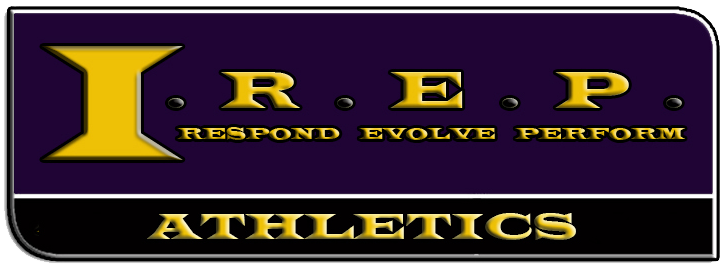Figure out Your Fitness Goals
Do a self-assessment or consult a health practitioner to get a comprehensive understanding of your current health and fitness status. Are there health concerns like obesity, high blood pressure, or other chronic illnesses to factor in?
Fitness goals should be concrete and achievable. Instead of ambiguous objectives like ‘get fit’, ‘lose weight’ or ‘build muscle’, aim for more specific goals. If weight loss is your goal, how many pounds do you aspire to shed in what time frame? If you’d like to build stamina, how many miles would you like to be able to run without getting breathless? Reaching them will seem less daunting, and progress will be more evident.
Weight loss goals are for those aiming to shed excess body weight, while strength and muscle gain are for individuals seeking to enhance their physical power or develop a muscular physique. Overall health improvement encompasses cardiovascular health, flexibility, stress management, etc., focusing on holistic well-being. Sports-specific training refers to tailored fitness programs meant to boost your performance in a particular sport. Weight loss might require significant changes to nutrition and frequent cardiovascular exercises. Muscle gain might entail strenuous weightlifting routines. Recognizing the level of effort your objectives will demand can help ensure you are ready for the commitment.
Check the Credentials
Fitness organizations set rigorous standards that trainers must meet. Earning a certificate from such an organization shows that the trainer has demonstrated the necessary competency in the fitness field.
Acquiring a credential requires that a fitness professional study relevant educational materials related to physical fitness and pass a comprehensive exam covering this information. Some institutions require practical experience as a part of certification, even further ensuring the trainer’s capability.
Knowing that your trainer has been trained according to high standards gives you confidence in their ability to provide efficient and safe fitness guidance. A trainer with appropriate credentials will be well-versed in anatomy, exercise science, and nutrition, and capable of designing a fitness program that accounts for your individual health and fitness needs.
Consider the Experience
 An experienced personal trainer will have worked with a variety of clients, each with unique fitness goals, capabilities, and limitations. This diversity presents an opportunity for the trainer to hone their skills, accumulate knowledge, and adapt techniques – akin to a chef refining a recipe to perfection.
An experienced personal trainer will have worked with a variety of clients, each with unique fitness goals, capabilities, and limitations. This diversity presents an opportunity for the trainer to hone their skills, accumulate knowledge, and adapt techniques – akin to a chef refining a recipe to perfection.
If you aim to shed weight, a trainer experienced in handling weight loss clients will be most suited. If regaining fitness after an injury is your goal, a trainer with experience in post-injury rehabilitation should be considered. Experienced trainers have the know-how to create customized exercise programs that help you achieve your specific goals safely and efficiently.
It is especially vital to consider a trainer’s experience if you have medical conditions like heart disease, diabetes, or arthritis. A seasoned trainer, having worked with similar clients, would have a solid understanding of your needs and would tailor a fitness regime that safely accommodates your health concerns.
An experienced trainer know when to push when to rest, and how to motivate. Working out under their expert guidance reduces the risk of injury and enhances the effectiveness of the exercise routine, leading to more noticeable results. Proven success stories can act as a significant motivator.
Gauge their knowledge by discussing your fitness goals and check for any testimonials or references from previous or existing clients.
Assess Their Communication Skills
A trainer should be able to explain exercises, routines, and fitness-related concepts clearly. They should articulate guidelines precisely yet simply, so you comprehend without feeling overwhelmed. Transparent and respectful communication promotes a positive trainer-client relationship.
Your trainer should have excellent listening skills. They need to understand your concerns, feedback, and goals accurately. If a trainer rushes through your sessions without paying attention to your comments or questions, it can lead to miscommunication, affecting your fitness goals adversely.
An empathetic trainer understands your struggles and triumphs and crafts a supportive workout environment for you.
Observe if they listen attentively to your queries and respond systematically. Feeling comfortable while conversing with them is a good marker of their communication competence.
A trainer must communicate changes in routines and why such changes are necessary. They should give timely and constructive feedback about your progress.
Evaluate Your Comfort Levels
Any trainer you choose should treat you with respect, acknowledging that every individual’s body, capabilities, and health background are different. This understanding on their part would make you feel more at ease, free to express your concerns, and more likely to persist with your training.
A good trainer will never unduly push you to adopt techniques or routines you are uncomfortable with. They should be flexible enough to adjust their techniques to suit you, not the other way around.
Fitness training often involves close physical interactions, with trainers required to correct your position or movements hands-on. Ensure you feel secure and comfortable with this aspect. Clear, professional communication about such contact is necessary to define boundaries and maintain trust.
Consider the Cost and Location
The charges can vary widely depending on the trainer’s level of experience, specialization, length and regularity of sessions, as well as your geographical location.
Encourage transparent conversations on cost, payment plans, cancellation policies, and any additional charges that might be pertinent. Contemplate if the value derived from your investment aligns with your fitness aspirations.
Busy schedules and long commutes are the biggest obstacles preventing regular workouts. Choosing a personal trainer who is close to your home or place of work can be an advantage. Some trainers offer online sessions, providing a flexible solution to geographical constraints.
It’s important to find a balance between cost and convenience. A more expensive but local trainer might offer greater value in the long run than a cheaper but far-off option, primarily due to the time saved.
